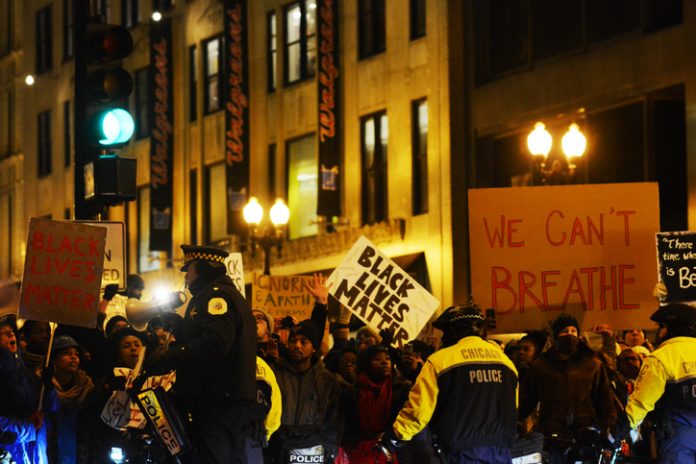A criminologist at the University of Newcastle has spoken out following the death of George Floyd, encouraging people to know their rights when it comes to filming the actions of police.
It coincides with the 17-year-old who filmed the arrest, Darnella Frazier, being both hailed and harassed for her actions or lack-there-of.
The teenager took to Facebook saying: “I am a minor, 17-years-old – of course I’m not about to fight off a cop, I’m scared.”
Dr Justin Ellis tells the Newcastle Weekly her actions should be praised.
“It takes a lot of fortitude and bravery and that needs to be recognised,” he says.
“What she did was correct, she filmed from far away and was not involved in the situation, and bystanders were saying get off him.”
He stresses that civilians have the right to film police on duty, as long as they don’t obstruct them from carrying out their work.
And, while doing so can be a “public service,” the emotional repercussions can be challenging.
“It’s a very personal decision [to film], and the George Floyd arrest is a good case study of how emotionally distressing it can be,” he says.
“It’s up to the individual but the main point is it’s lawful.
“You need to be safe but it’s an incredible public service, as much as people might be criticised for not doing more.”
Dr Ellis admits, from his research, he’s uncovered that being filmed does cause police to change their behaviour- often using less force than they would usually.
“Police do moderate their use of force because of video,” he says.
“It lets police know there is a bystander. They have a difficult job and things can go wrong, but generally filming can moderate police behaviour, but it’s a case by case analysis.”
Dr Ellis’ PhD involved an in-depth case study of the excessive force used by Australian police against Sydney teenager Jamie Jackson at the 2013 Sydney Gay and Lesbian Mardi Gras parade, which was captured on video.
He says the development of technology, rise of social media sharing platforms and improvements to wifi capacity have created a new dimension when it comes to holding police accountable.
“At the time of my research there was a combination of factors; the development of smart phones, increased capacity of smart phone cameras and the quality of videos, increased wifi capacity and the capacity to share video through social media.”
“The Mardi Gras video got a million views in a week, now you’d say that’s nothing, but it was one of the first to go viral in Australia.”
Smartphones can be the enemy and ally of police, with video footage being used as evidence to defend or incriminate.
And, at times, it can be misleading, providing only a snapshot in time.
“One of the problems with video is that it can be from the person filming’s point of view,” he says, referencing the arrest of a Sydney Indigenous teenager in Surry Hills this week.
“With that video it’s too early to tell, but the big problem is the public doesn’t understand what force is necessary and reasonable in those contexts.”
“Each video needs to be taken on its merit, on a case by case basis depending on what happened beforehand, during and afterwards.
“Video only captures during so it all depends on the footage.”
His main message, if you’re ever questioned by police as to why you’re filming, you have every right to, as long as you are out of the way.
For more stories like this:







